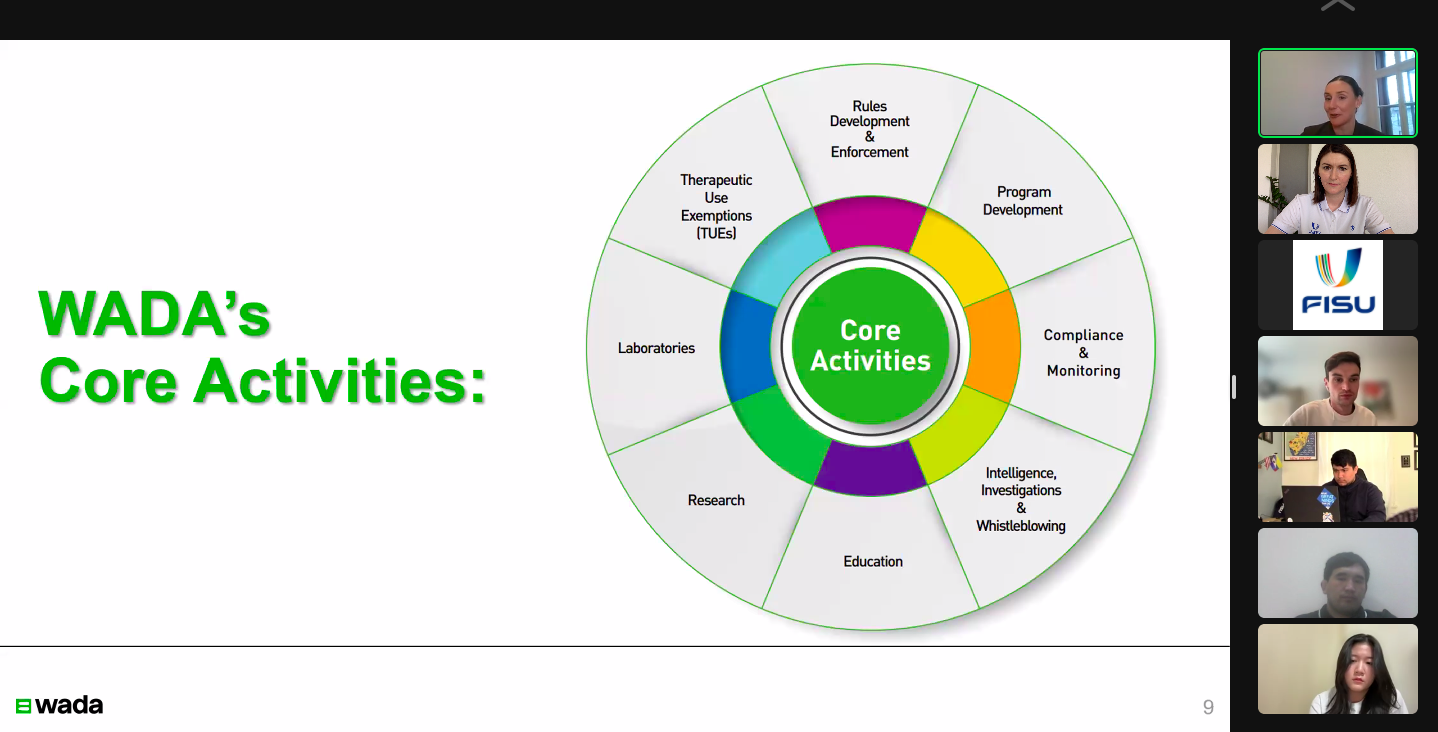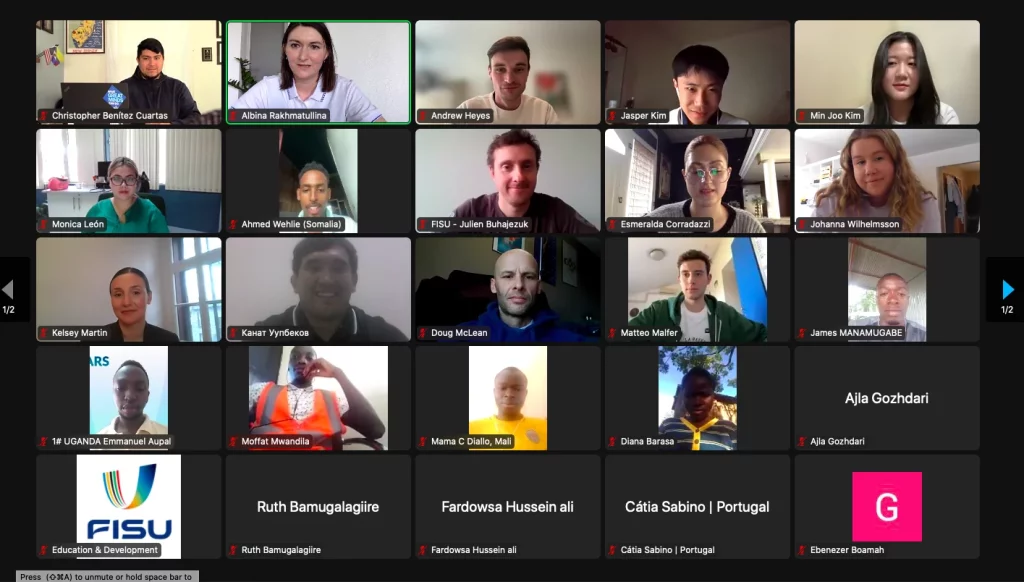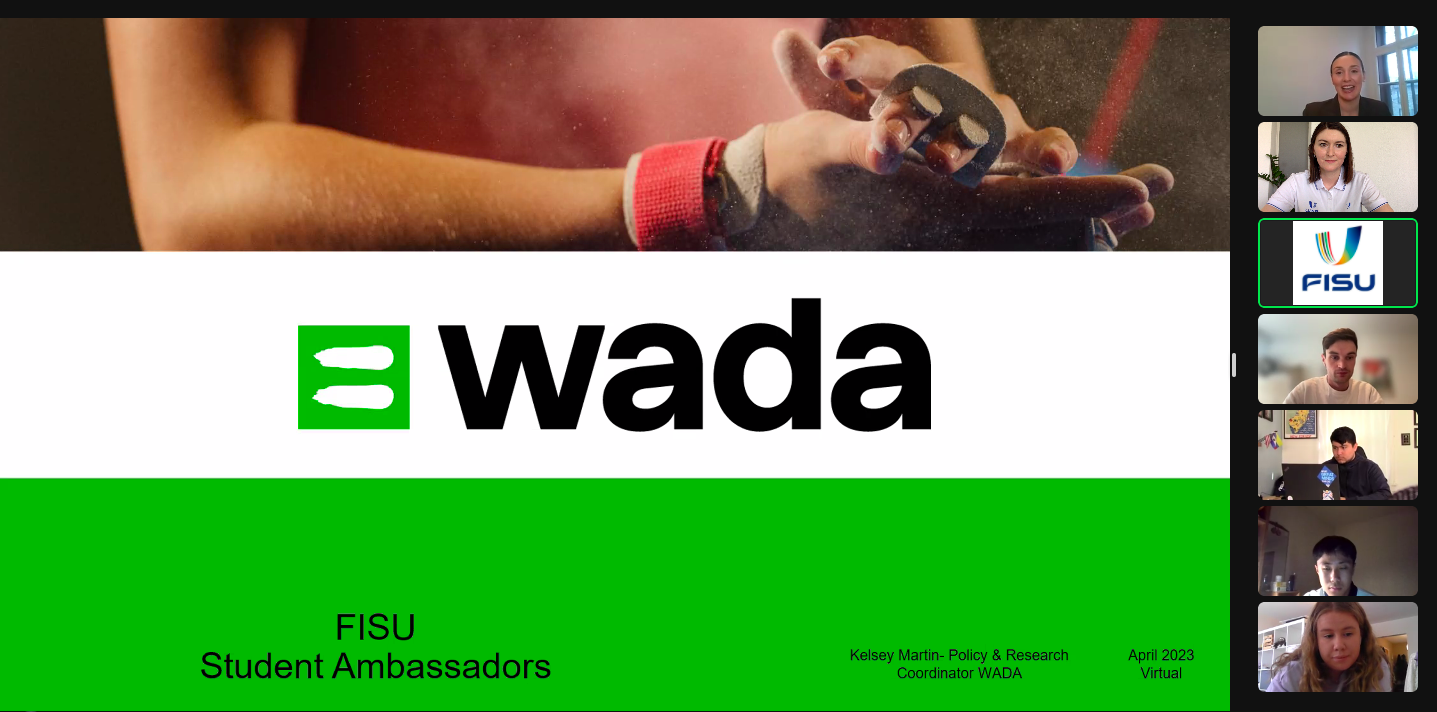The latest session for the FISU Volunteer Leaders Academy (FVLA) brought participants expert information on clean sport from representatives with the World Anti Doping Agency (WADA). Participants listened in to learn about how athletes and their supporters are educated and engaged in the discussion about clean sport and the integrity of sport.
Introductions were brought from FISU Program Coordinator Albina Rakhmatullina and FISU Education Manager Julien Buhajezuk, who spoke about the sustained relationship that continues to exist between WADA and FISU.

The first presenter was Kelsey Martin, Coordinator of Research and Policy in the Education Department with WADA in Montreal. She provided participants an overview of clean sport as well as how research and education contributes to better ensuring athletes and their supporters understand their respective responsibilities. She noted that there currently are 690 signatories that have adopted WADA’s code, 189 state parties that ratified the UNESCO International Convention against Doping in Sport, and that at 98% global endorsement, it the second most successful UNESCO program in history in terms of post-adoption ratification.
Martin also spoke about how education can support athletes and their supporters through their athletic journey. She said, “As an athlete gets more competitive the demands of training also get more competitive and they grow. The desire to win grows, as well as the desire to be the best. Over time it’s easy to potentially lose sight of what is most valued through sport. A defeat in competition may be difficult to handle, injury periods may be challenging, and additionally an athlete’s entourage may put increased pressure. . . vulnerabilities may arise which may lead to an athlete being tempted to take shortcuts. At this point, it becomes the athlete’s choice.” This is where education at all levels, from children’s sport through to youth competition and national level events, comes in to help athletes understand how to manage different temptations within their journey. She points out as well that the majority of athletes do and wish to compete clean but how education can support in ensuring this remains the case.

Following Martin, Dr. Andrew Heyes, a member of WADA’s Social Science Research Expert Advisory Group, the United Kingdom Athletics Athletes’ Commission Chair, and an international distance runner for Great Britain, presented about research being done on the topic of clean sport. 82 elite athletes from the UK, Slovenia, Ireland, the Netherlands, and Germany were part of focus groups conducted by athlete-researchers to gain a greater understanding of clean sport. From this research, four themes emerged:
- Athlete – often their upbringing has impacted their belief in fairness and equality in sport and how they condemn cheating. “They value the process and the experience of sport, not just winning,” said Heyes.
- Behaviour – this relates to the desire for athletes to follow the WADA code while also establishing personal boundaries for how they will operate within that code.
- Environment – the importance of the training and competitive environments, as well as an athlete’s entourage, can impact an individual’s ability to remain a clean athlete.
- Anti-doping – relating to the structures and systems that support clean sport.
Heyes also spoke about research into whether clean sport and anti-doping are synonymous. He indicated how in para sport, integrity issues such as classification manipulation are of greater concern to ensuring clean sport. As such, it indicates that clean sport is related to anti-doping, but it is not the same thing.
This session, which helped educate participants on the importance, layers, and complexity of clean sport concluded with Rakhmatullina speaking about WADA’s Play True Day. It was held 14 April 2023, as a day dedicated to raising awareness among athletes, and the sport world about the importance of preventing doping in sport.
Written by Doug McLean
